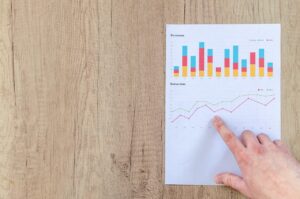6 Ways to Make Capital Gains

Written by R. A. Stewart
There are basically two types of investment income. Capital Gains and Investment Income.
Investment income is income you receive from an asset, examples of investment income are interest on savings, rent from property, and dividends from shares.
Capital gains is the increased value of an asset; examples of capital gains is the increased value of property, shares, and other assets.
Some investments provide capital gains but no income; examples of these are precious metals such as gold, bitcoin, antiques and other collectable items.
Here are investments which provide Capital Gains:
The Sharemarket
The sharemarket offers excellent opportunities for capital gain. For most people, investing directly into the markets is not an option because the transaction fees once taken out for buying and selling shares make it not worth their while, however, there are plenty of managed funds investors with limited means can participate in. Sharesies in New Zealand is one. Investors can drip feed money into the markets with Sharesies and there is the option of investing in various funds or individual companies. Other similar types of platforms in New Zealand are Investnow, Kernelwealth, and Hatch. These are not the only ones though.
Your retirement scheme invests in managed (Mutual Funds) and they are also a form of Capital Gains. In New Zealand joining kiwisaver is a no brainer. KIwisaver is New Zealand’s retirement scheme.
Property
The property market has been a popular Captain Gains tool for a lot of investors using not only their money but other people’s money in the form of a loan. Income is gained from rents which pays for the mortgage. All related costs are the most popular form of capital gains and the easiest one for the novice investor to get their toe wet in the markets and learn as you go because there are several mutual funds which are available and the start up costs are minimal. In New Zealand Sharesies only costs $1 to get into which gives you the chance to invest in managed funds or individual companies. It is a great way for tax deductible. This type of investment can turn to custard such as wayward tenants. If you are prepared to take the risk then this investment may suit.
Your own home is a good source of Capital Gains if you intend to sell at some point.
Another way to get in on the property ladder is to purchase shares in property investment companies in the sharemarket. This can be done by investing in individual companies or managed funds which invest in property.
Compound Interest
You must have heard of compound interest; that is when you invest in fixed term accounts for x% interest. Instead of receiving your interest payments into your bank account you let them be added on to your principal and you earn interest on your principal and previous interest payments. This is called compounded interest.
The increase to your capital is called “Capital Gains.”
Interest rates are very low at present (2020); in some instances lower than the inflation rate which makes this kind of investing less attractive. It is important therefore to do your due diligence and not be enticed by some finance company offering higher interest rates than normal, because with higher interest rates comes higher risk. These finance companies offering higher interest rates lend to higher risk types of borrowers.
I am not saying that you should not invest your money in these companies but rather do your due diligence and at least diversify your portfolio rather than plonking all of your life savings into the ione company.
Gold
This one is purely speculative but can be a good hedge against a downturn in the markets. The one drawback with gold is finding a place to store it. Another way to invest in gold is buying gold stocks in the sharemarket. Purchasing gold coins from auction sites such as Ebay and Trademe is another option. As with other investments it pays to do your homework and read all you can about gold and other precious metals.
Crypto Currency
Crypto currency such as Bitcoin and the like should be treated as speculative investments, therefore, only invest money in this if you can afford to lose it. What I am saying is use your discretionary income to purchase crypto currency. This type of investing can be a rollercoaster but one piece of advice which may be useful is to not just purchase all your crypto currency in one transaction but to do on a weekly, fortnightly, or monthly basis so that there is a chance that you have made a purchase when the currency is low. It is called averaging.
Collectables/Antiques
Investing in collectibles can give you a sense of satisfaction and profit when you intend to sell. You really have to know your stuff when dealing in antiques. Always remember, something is only worth what others are prepared to pay for. If someone is prepared to pay $1,000 for a painting at auction then that is what it is worth, however, if another painting is sold at auction for just $10, then that is it’s worth. The value of something is only a matter of opinion.
Recently (2020), some Banksy paintings sold for over $100,000 in New Zealand. The seller of the paintings paid a total of $500 for them in London (UK) some years earlier. It just shows how one’s eye for a bargain can be profitable.
For smaller items such as postage stamps, bank notes, beer labels, and so forth collectors can list their duplicates on auction websites to help fund their hobby.
This article is of the writer’s opinion and experience and may not be applicable to your personal circumstances therefore discretion is advised.
Feel free to share this article. You may use it as content for your blog/ebook.



















